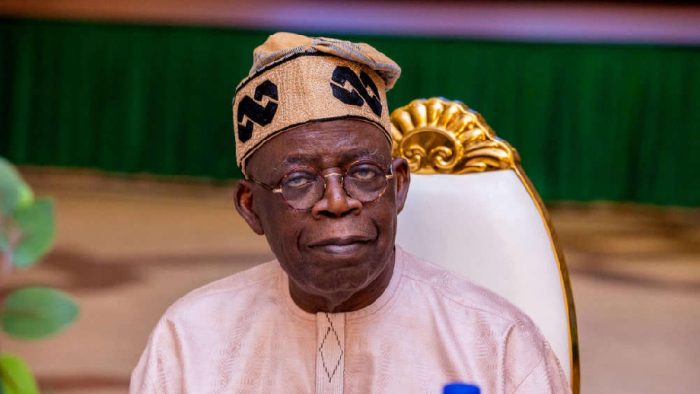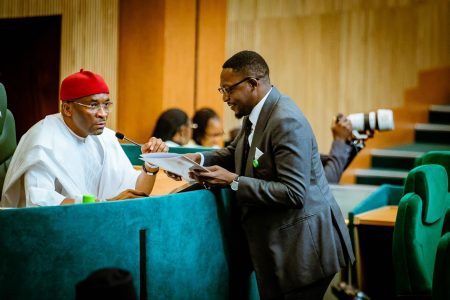Stakeholders at a research conference held at Afe Babalola University, Ado-Ekiti (ABUAD) have called on the Federal Executive Council to submit a bill for the enactment of a National Artificial Intelligence Strategy by the second quarter of 2026, with a view to having it passed into law by the National Assembly before the end of that year.
This was the central resolution from the One-Day Research Conference organised by the university’s College of Social and Management Sciences, themed “Artificial Intelligence and Sustainable Development: Implications for Government, Economy, Society, and Policy Making in Nigeria.”
Keynote speaker and House of Representatives member, Hon. Donald Ojogo, represented by Mr. Richard Olatunde, stressed the urgent need to institutionalize Nigeria’s approach to artificial intelligence (AI) and ensure its responsible use across sectors.
“Developing and deploying AI technologies to address immediate needs in healthcare, agriculture, education, and environmental protection is no longer optional, it is imperative,” he said.
Ojogo, who represents Ilaje/Ese-Odo Federal Constituency, emphasized interdisciplinary collaboration, noting that effective AI policy must combine the expertise of technologists, economists, sociologists, and environmental scientists. He also advocated the inclusion of indigenous knowledge systems in AI models to create solutions that are culturally appropriate and widely accepted.
“AI holds vast potential for riverine areas where complex challenges require localized innovations,” he added, urging continuous impact monitoring to ensure long-term sustainability.
Also speaking, Dr. Awe Agboluga, a renowned accounting and management consultant, warned of cybersecurity threats posed by AI and recommended that the Federal Government develop a national AI cybersecurity protocol specifically tailored to protect financial institutions and enhance corporate governance.
Agboluga called on the Economic and Financial Crimes Commission (EFCC) and professional bodies like ANAN and ICAN to introduce AI ethics training aimed at curbing algorithmic bias and fostering responsible AI development.
“Ethical governance in AI must begin with education. Regulators, financial institutions, and professional bodies must understand the risks and responsibilities of deploying AI tools,” he said.
He also urged the Federal Ministry of Communications, Innovation, and Digital Economy to tighten enforcement of the Nigeria Data Protection Regulation (NDPR) to ensure data security in AI applications.
On its part, ABUAD reaffirmed its commitment to AI and digital innovation through both curriculum development and policy advocacy.
The university’s Deputy Vice Chancellor (Administration), Prof. Olasupo Ijabadeniyi, who represented Vice Chancellor Prof. Smaranda Olarinde, announced that the institution is realigning academic programmes to prepare students for AI-driven careers across disciplines.
“We are not waiting for the future to catch up with us. We are preparing our students now to lead in the data economy,” he said.
Prof. Olayinka Aina, Provost of the College of Social and Management Sciences and DVC (Academics), also revealed that the National Universities Commission (NUC) has granted ABUAD approval to launch new degree programmes in Data Science and Cybersecurity from the 2025/2026 academic session, positioning the university as a leader in Nigeria’s AI education landscape.
The event brought together scholars, policymakers, and industry experts to deliberate on the ethical, economic, and legislative frameworks Nigeria must adopt to harness AI for sustainable development. Participants agreed that 2026 presents a critical deadline for Nigeria to formalize its national AI strategy through legislation, regulation, and education.













